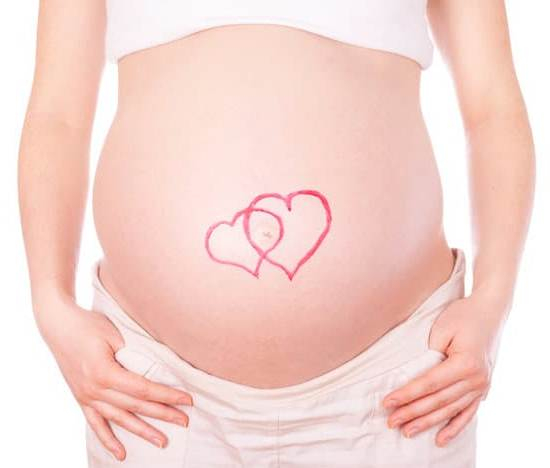How much caffeine during pregnancy is a common concern for expectant mothers. As a crucial period of development for the baby, it’s important to understand the impact of caffeine intake on pregnancy. This article will explore the potential risks and concerns associated with caffeine consumption during pregnancy, as well as provide guidelines and recommendations from healthcare professionals on recommended daily caffeine intake for pregnant women.
Pregnant women are often advised to be conscious of their caffeine intake due to its potential effects on fetal development. The consumption of caffeine during pregnancy has been a topic of debate, with varying opinions on its safety and impact. Understanding the importance of monitoring caffeine intake is essential for expectant mothers in making informed choices for the health and well-being of both themselves and their developing baby.
In this article, we will delve into the effects of caffeine on pregnancy, identifying hidden sources of caffeine, exploring alternative options for pregnant women, and discussing the impact of caffeine on fetal development. It is crucial for pregnant women to have an understanding of how much caffeine is safe during pregnancy and to seek guidance from their healthcare providers when making decisions about their caffeine consumption.
The Effects of Caffeine on Pregnancy
During pregnancy, it is important to be mindful of the amount of caffeine consumed on a daily basis. Caffeine is a stimulant that can cross the placenta and reach the baby, potentially affecting its development. Here are some potential risks and concerns associated with consuming too much caffeine during pregnancy:
- Increased risk of miscarriage: Studies have suggested that high levels of caffeine consumption during pregnancy may increase the risk of miscarriage. It is important for pregnant women to be aware of their daily intake and consider reducing it to lower this risk.
- Restricted fetal growth: Some research has indicated that excessive caffeine intake may restrict fetal growth and lead to low birth weight. This can potentially impact the baby’s health both at birth and in the long term.
- Interference with sleep patterns: Consuming too much caffeine during pregnancy can disrupt sleep patterns, leading to sleep disturbances and insomnia. Adequate rest is crucial for the health and well-being of both the mother and the developing baby.
It is important for expectant mothers to understand these potential risks and concerns related to excessive caffeine consumption. By being aware of these factors, pregnant women can make informed decisions about how much caffeine they consume during their pregnancy. It is advisable to consult with healthcare professionals for personalized recommendations on managing caffeine intake while expecting a child.
Recommended Daily Caffeine Intake for Pregnant Women
During pregnancy, it’s important for women to be mindful of their caffeine intake due to its potential impact on both maternal and fetal health. Healthcare professionals often provide guidelines and recommendations regarding the daily limit of caffeine that is considered safe for pregnant women. Understanding these guidelines can help expectant mothers make informed decisions about their caffeine consumption.
Understanding the Guidelines
Healthcare professionals typically advise pregnant women to limit their daily caffeine intake to 200 milligrams or less. This recommendation is based on research suggesting that consuming higher levels of caffeine during pregnancy may be associated with an increased risk of miscarriage, preterm birth, and low birth weight. It’s important for expectant mothers to adhere to these guidelines to safeguard the health of both themselves and their developing baby.
Monitoring Caffeine Intake
To ensure compliance with recommended guidelines, it can be helpful for pregnant women to monitor their caffeine intake. This involves being aware of how much caffeine is present in various beverages and food items, which can vary significantly. Keeping track of daily consumption can also assist in making adjustments if necessary.
Seeking Professional Advice
In some cases, healthcare providers may recommend further minimizing or completely avoiding caffeine intake based on individual health circumstances. Pregnant women should openly discuss their habits and concerns with their healthcare provider, who can offer personalized guidance based on the specific needs of each patient. An open dialogue with a healthcare professional is crucial for making well-informed decisions about managing caffeine intake during pregnancy.
Sources of Caffeine to Be Aware of During Pregnancy
During pregnancy, it is crucial for expecting mothers to be mindful of their caffeine intake. While coffee and tea are commonly known sources of caffeine, there are many other hidden sources that pregnant women should be aware of. Identifying these hidden sources can help in managing and reducing overall caffeine consumption during pregnancy.
Some commonly consumed items that contain caffeine include:
- Chocolate: Many varieties of chocolate, especially dark chocolate, contain a significant amount of caffeine.
- Energy drinks: These beverages often contain high levels of caffeine and other stimulants.
- Soda: Certain types of soda, particularly colas, contain caffeine.
- Over-the-counter medications: Some pain relievers and cold medications may contain caffeine as an active ingredient.
In addition to these items, pregnant women should also be cautious about consuming certain teas, ice cream, and even some decaffeinated coffee which may still contain trace amounts of caffeine. Being mindful of the various sources of caffeine can help expecting mothers make informed choices about their dietary habits during pregnancy.
It is important for pregnant women to read labels carefully and consider the potential presence of caffeine in products that may not seem obviously caffeinated. This level of awareness can contribute to better management of overall caffeine intake during pregnancy.
Ultimately, understanding the various sources of caffeine during pregnancy is an essential aspect in effectively controlling and managing daily consumption. By identifying hidden sources and making informed choices about what they consume, expecting mothers can take proactive steps towards promoting a healthy pregnancy for both themselves and their developing baby.
Managing Caffeine Intake During Pregnancy
Pregnancy is a time when women become especially mindful of what they eat and drink, as their choices can affect the health and development of their baby. One substance that often comes into question during this time is caffeine.
Many pregnant women wonder how much caffeine is safe to consume, and whether or not it’s necessary to cut it out completely. Understanding the potential risks and concerns associated with caffeine consumption during pregnancy is crucial in making informed decisions about managing intake.
Setting Limits and Monitoring Intake
Healthcare professionals typically recommend that pregnant women limit their daily caffeine intake to no more than 200 milligrams. This amount is equivalent to about one 12-ounce cup of coffee. It’s important for expecting mothers to carefully monitor their caffeine intake from all sources, including coffee, tea, soft drinks, energy drinks, chocolate, and certain medications. Keeping track of how much caffeine is being consumed can help ensure that limits are being adhered to.
Gradually Decreasing Consumption
For pregnant women who are used to consuming larger amounts of caffeine on a regular basis, abruptly cutting it out completely can lead to withdrawal symptoms such as headaches and fatigue. Instead, healthcare professionals often advise gradually decreasing caffeine consumption over time in order to minimize these effects. This might involve switching from regular coffee to decaffeinated options or choosing alternative beverages altogether.
Seeking Support and Alternatives
Managing caffeine intake during pregnancy can be challenging, especially for individuals who rely on it for an energy boost. Seeking support from partners, family members, or friends can be helpful in maintaining a lower level of consumption. Additionally, exploring alternative options such as herbal teas or natural energy-boosting snacks can provide pregnant women with the satisfaction they seek without relying on caffeinated beverages.
Alternative Options
During pregnancy, many women may be concerned about how much caffeine they can consume safely. It’s important for expectant mothers to understand that high levels of caffeine intake can have potential risks and concerns for both the mother and the developing baby. As a result, it’s crucial to explore alternative options for beverages that are caffeine-free or low in caffeine content.
One popular option for pregnant women looking to reduce their caffeine intake is decaffeinated coffee. Decaf coffee contains only a small amount of caffeine, making it a suitable alternative for those who enjoy the taste of coffee but want to minimize their caffeine consumption. Additionally, herbal teas such as chamomile, peppermint, and ginger are excellent alternatives that are naturally caffeine-free and can provide comfort and relaxation during pregnancy.
Aside from beverages, pregnant women can also explore other sources of energy and refreshment. For example, fruit-infused water or natural fruit juices can provide a hydrating and flavorful option without the need for caffeine. Smoothies made from fruits, vegetables, and non-dairy milk or yogurt are also nutrient-rich choices that can help satisfy cravings and provide essential vitamins and minerals.
In general, it’s important for pregnant women to be mindful of their overall intake of caffeinated beverages and food items in order to stay within recommended guidelines provided by healthcare professionals. By exploring different caffeine-free options, expectant mothers can still enjoy a variety of delicious drinks while minimizing their consumption of caffeine during this crucial time.
| Alternative Options | Details |
|---|---|
| Decaffeinated coffee | Contains only a small amount of caffeine |
| Herbal teas (chamomile, peppermint, ginger) | Naturally caffeine-free options that provide comfort |
| Fruit-infused water/natural fruit juices | Hydrating and flavorful alternatives to caffeinated beverages |
| Smoothies (fruits/vegetables/non-dairy milk or yogurt) | Nutrient-rich options with essential vitamins and minerals |
The Impact of Caffeine on Fetal Development
During pregnancy, it is important to be mindful of how much caffeine you are consuming. The impact of caffeine on fetal development can have potential effects on the developing baby, and understanding these effects is crucial for expectant mothers. Research has shown that high levels of caffeine consumption during pregnancy may be associated with a higher risk of miscarriage, low birth weight, and preterm birth. This is why healthcare professionals recommend monitoring and limiting caffeine intake during this critical time.
According to the American College of Obstetricians and Gynecologists (ACOG), it is generally safe for pregnant women to consume up to 200 milligrams of caffeine per day. This is equivalent to about one 12-ounce cup of coffee.
However, it’s important to note that different sources of caffeine, such as tea, chocolate, energy drinks, and some over-the-counter medications, also contribute to overall intake. Therefore, it’s essential for pregnant women to be aware of their total daily caffeine consumption from all sources.
Healthcare providers advise pregnant women to consider alternatives to caffeinated beverages in order to minimize potential risks to fetal development. Opting for decaffeinated coffee or tea, herbal teas, and other caffeine-free beverages can help reduce overall caffeine intake. Furthermore, staying hydrated with water and consuming nutrient-rich foods can also support maternal and fetal health without relying on caffeinated drinks.
It’s essential for expectant mothers to have open communication with their healthcare provider regarding their caffeine intake during pregnancy. A healthcare professional can provide personalized guidance based on individual circumstances and offer support in making informed decisions about managing caffeine consumption while prioritizing maternal and fetal well-being.
| Effects | Recommendations |
|---|---|
| Increase risk of miscarriage | Limiting caffeine intake up to 200mg/day |
| Low birth weight | Consider alternatives such as decaffeinated beverages |
| Preterm birth | Discuss concerns with a healthcare professional |
Talking to Your Healthcare Provider
During pregnancy, it is important for expectant mothers to have open and honest discussions with their healthcare providers about their caffeine intake. This is crucial because healthcare professionals can provide personalized guidance and recommendations based on a woman’s individual health status and pregnancy journey. By discussing one’s caffeine consumption with a healthcare provider, pregnant women can gain valuable insights into how much caffeine is safe for them and their developing baby.
Healthcare providers can help pregnant women understand the potential risks and concerns associated with consuming too much caffeine during pregnancy. They can provide information about the recommended daily caffeine intake for pregnant women, which can vary based on factors such as maternal age, overall health, and any existing medical conditions. Additionally, healthcare professionals can offer guidance on identifying sources of caffeine in a woman’s diet and suggest alternative options for managing caffeine intake.
It is important to have these conversations early in pregnancy and to maintain ongoing communication as the pregnancy progresses. This allows healthcare providers to monitor the impact of caffeine on fetal development and make any necessary adjustments to a woman’s prenatal care plan. Ultimately, by talking to their healthcare providers about caffeine intake and concerns during pregnancy, expectant mothers can make informed decisions that support their own health as well as the well-being of their growing baby.
Conclusion
In conclusion, it is crucial for pregnant women to prioritize making informed choices about their caffeine consumption during pregnancy. Understanding the potential risks and concerns associated with caffeine intake, as well as the recommended daily limits provided by healthcare professionals, can help expectant mothers navigate their caffeine consumption effectively.
By being aware of sources of caffeine to watch out for and implementing strategies to manage intake, such as opting for caffeine-free beverages and substitutes, pregnant women can take proactive steps to safeguard their health and the well-being of their developing baby.
The impact of caffeine on fetal development cannot be understated, emphasizing the importance of monitoring and controlling caffeine intake during pregnancy. Research has shown that high levels of caffeine consumption may pose risks to the developing baby, making it essential for expectant mothers to seek guidance from their healthcare providers in managing their caffeine intake.
Open communication with a healthcare professional can provide valuable insight and personalized recommendations on how much caffeine during pregnancy is safe and appropriate for individual circumstances.
Ultimately, by taking a proactive approach to understanding and managing caffeine intake during pregnancy, women can make informed choices that support the health and development of both themselves and their babies. It is important to prioritize open communication with healthcare providers, seek out alternative options to traditional caffeinated beverages, and remain vigilant about hidden sources of caffeine in order to ensure a healthy pregnancy journey.
Making thoughtful decisions about caffeine consumption is an integral part of maternal care during pregnancy, contributing to overall wellness for both mother and child.
Frequently Asked Questions
How Does Caffeine Affect a Fetus?
Caffeine can cross the placenta and affect a fetus, potentially leading to low birth weight or miscarriage. It can also increase the risk of preterm birth and negatively impact fetal heart rate.
What Happens if You Go Over 200 Mg of Caffeine While Pregnant?
If you consume over 200 mg of caffeine while pregnant, it may lead to an increased risk of miscarriage or low birth weight. It can also affect the baby’s sleep patterns in the womb.
Can I Have 300 Mg of Caffeine Pregnant?
While some studies suggest that consuming up to 300 mg of caffeine during pregnancy is safe, others advise limiting intake to 200 mg per day to minimize any potential risks to the baby’s health. It’s important to consult with a healthcare provider before making any decisions about caffeine consumption during pregnancy.

Welcome to my fertility blog. This is a space where I will be sharing my experiences as I navigate through the world of fertility treatments, as well as provide information and resources about fertility and pregnancy.





